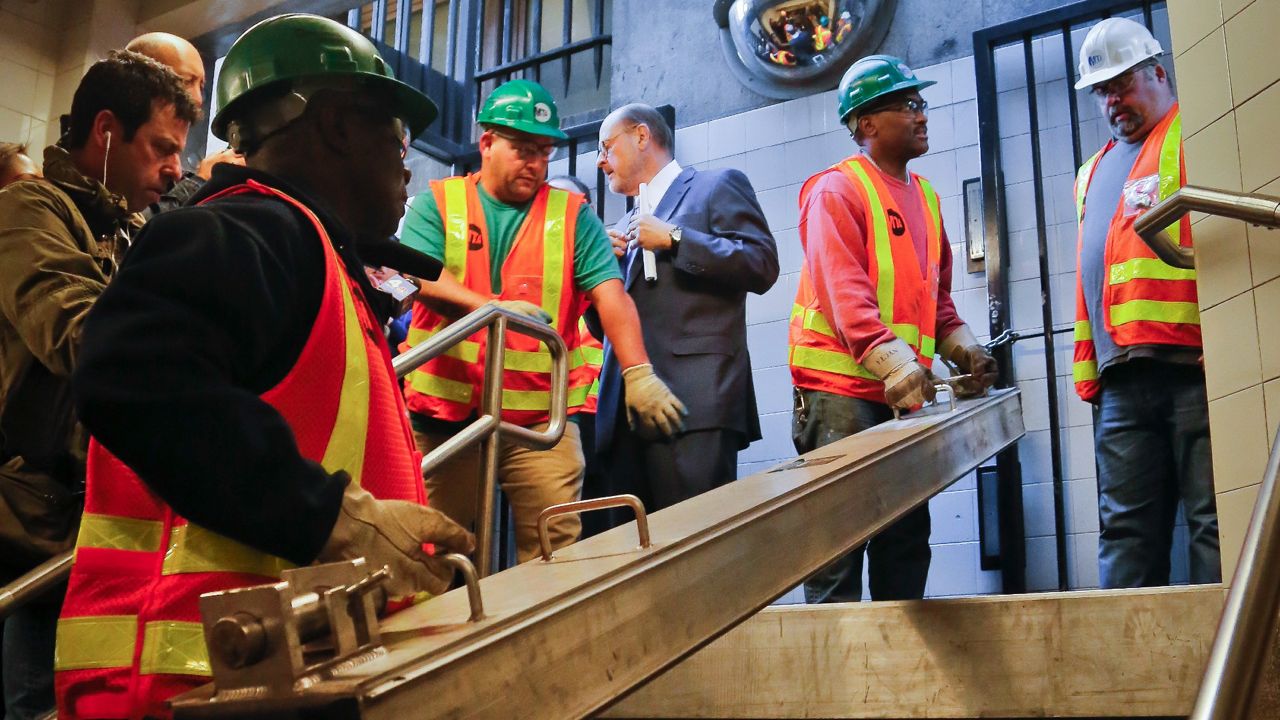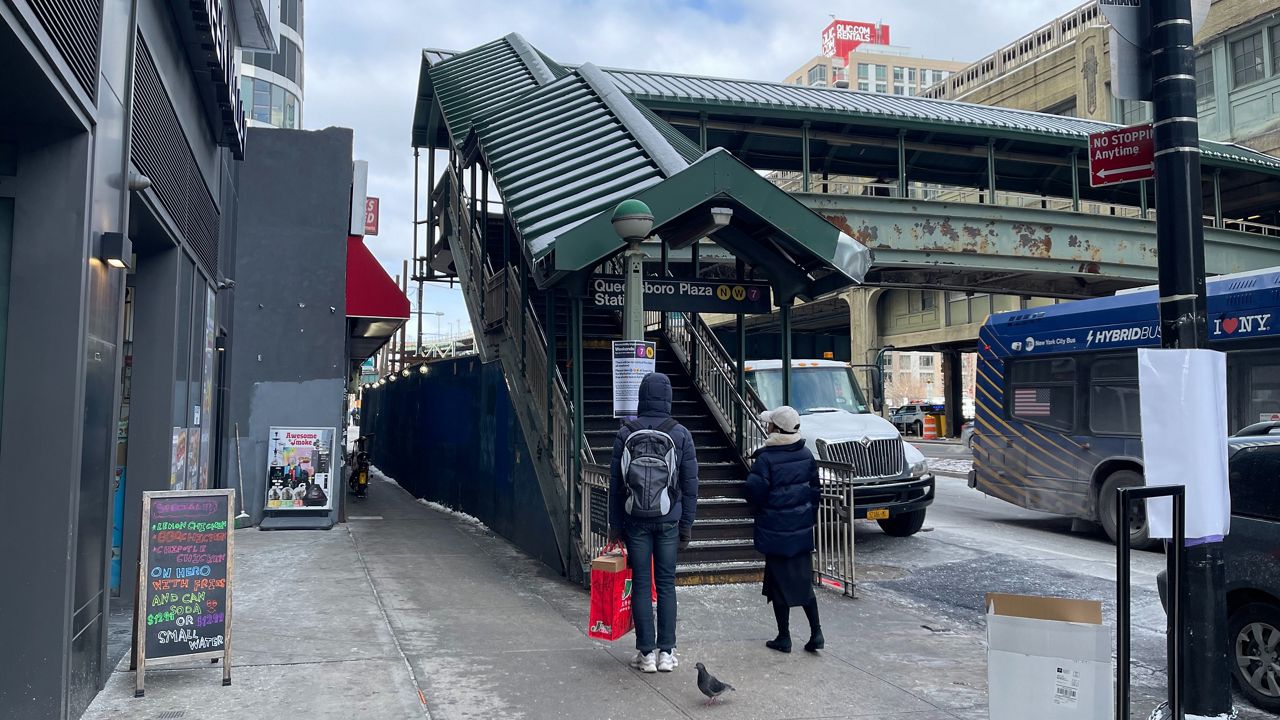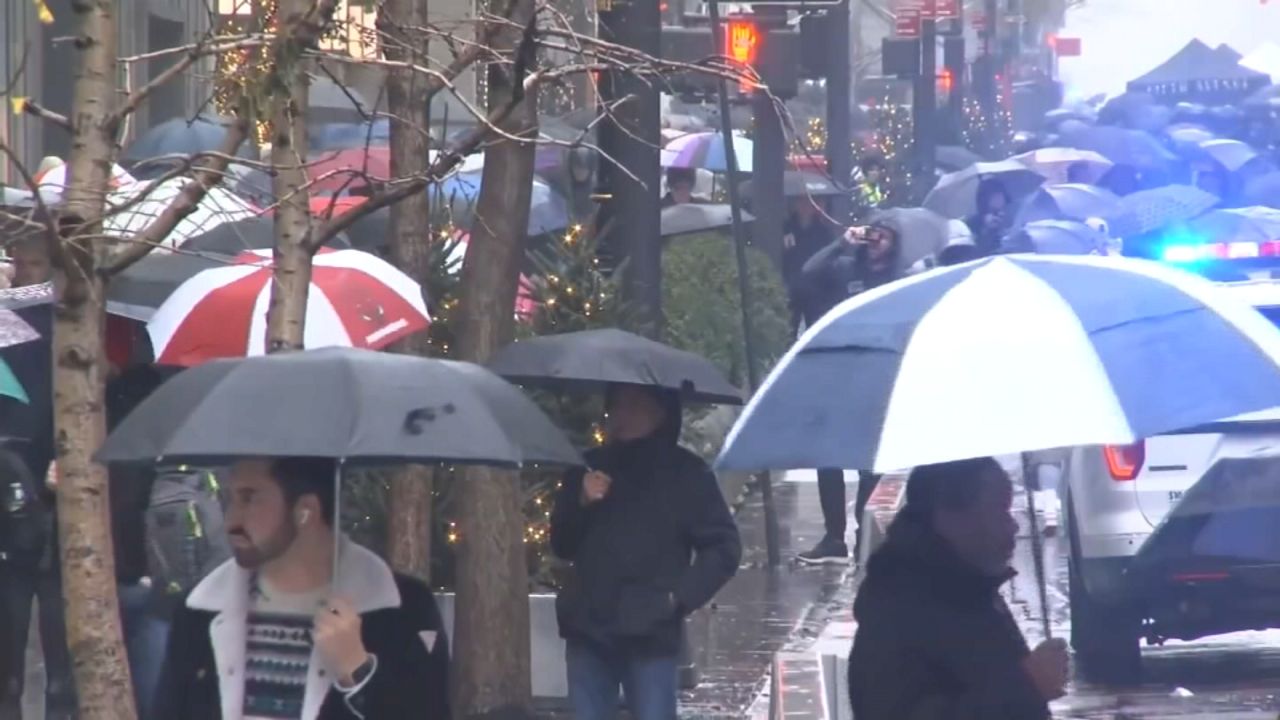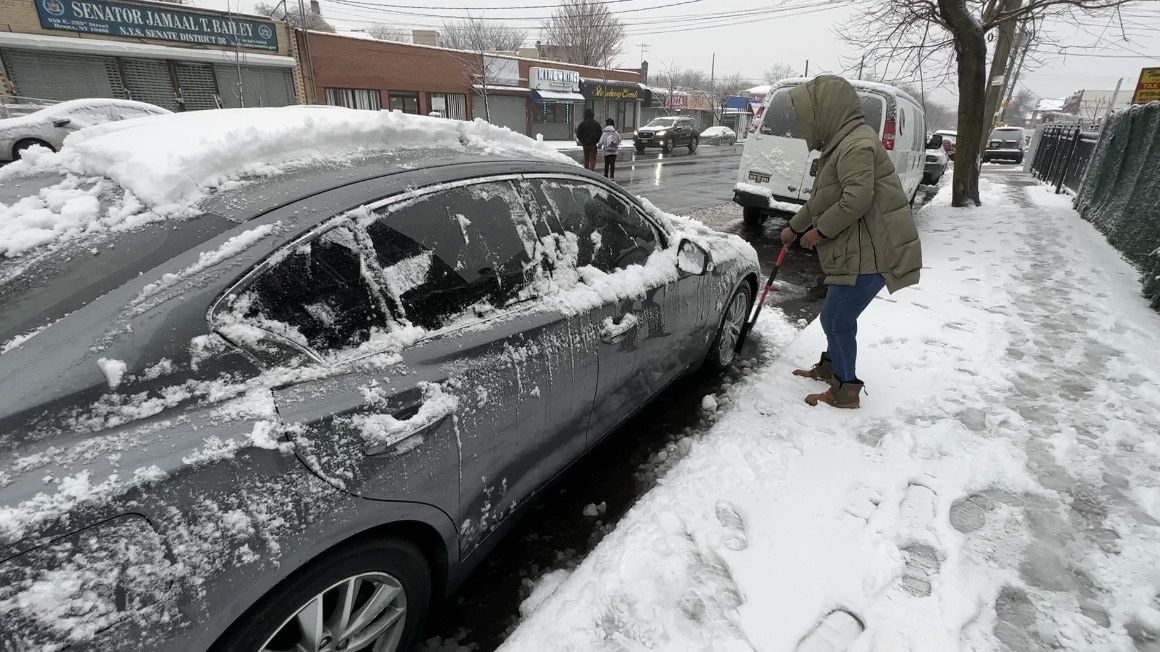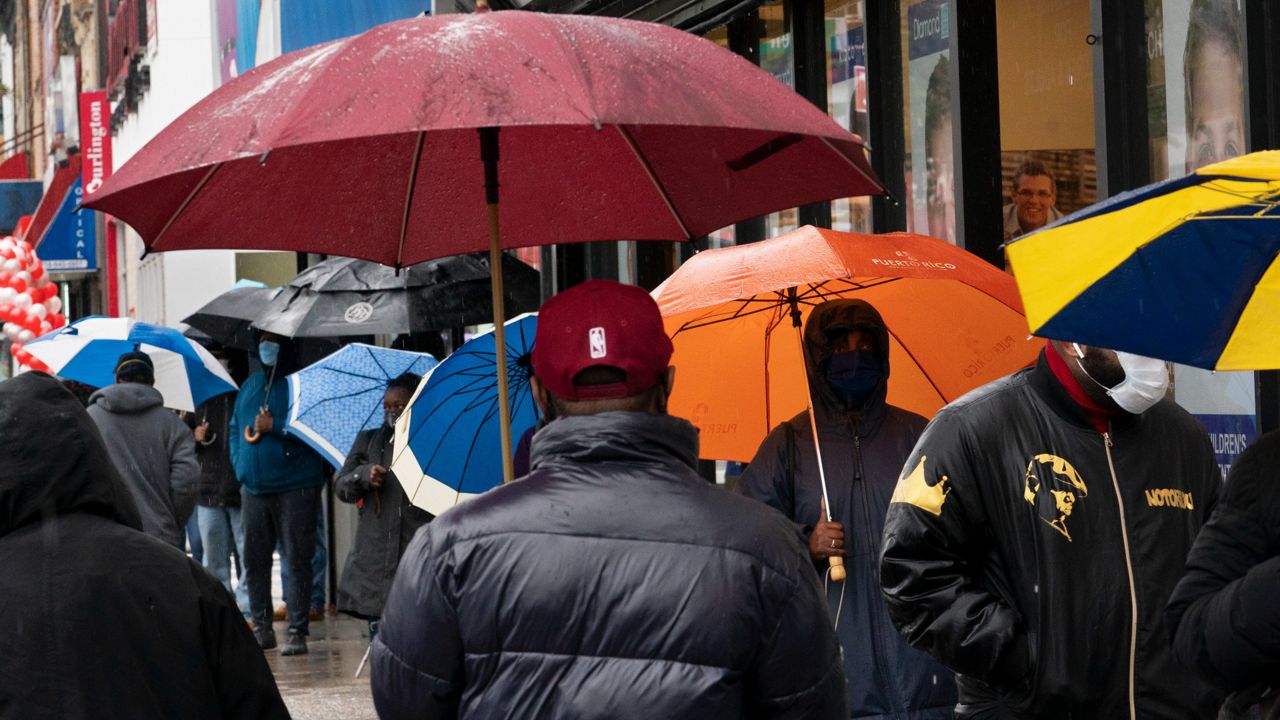Before another hurricane hits the five boroughs, NYC Transit needs to sure up their flood mitigation strategies, an audit conducted by the Office of MTA Inspector General found.
According to the report released Wednesday, NYC Transit’s plans to deploy $350 million worth of flood control devices leading up to the next massive storm need more coordination and streamlining.
"Riders and NYC residents are relying on the MTA to deploy millions of dollars' worth of flood control devices correctly and efficiently when the time comes, and a hurricane is forecast,” Acting MTA Inspector General Elizabeth Keating said in a statement.
The city’s transit system routinely sees heavy flooding during and after downpours, regardless of whether or not the storm garners hurricane classification. In fact, Monday’s storm sent straphangers in the Bronx seeking cover as a waterfall of rainwater gushed into the subway system.
The 3,500 devices, which the city purchased after Hurricane Sandy, will need to be manually deployed leading up to the next hurricane. They will play a critical role in protecting the city’s subway system from water intrusions through sidewalk vents, station entrances, manholes, yard entrances and other portals — all of which cannot be permanently closed without disrupting transportation services.
The task of deploying those machines, according to both the audit and NYC Transit, is enormous: The subway system would need to shut down approximately 12 hours before the storm; other critical storm-related activities would take approximately 72 hours.
The inspector general is recommending NYC Transit improve communication between the vendors who manufacture and install the devices and the employees responsible for maintaining and activating them. In addition, the report recommends annual testing of the devices, and the development of efficient deployment routes and accurate time estimates for installation.
The audit notes that NYC Transit was receptive to the report’s findings and accepted 14 of the 15 recommendations.
In a statement, MTA Spokesperson Michael Cortez responded to the report saying the agency is already taking action.
“This report highlights the substantive steps NYC Transit has already taken in partnership with MTA Construction & Development to address a complex, yet vital task,” Cortez said. "NYC Transit is uncompromisingly committed to resiliency, investing $5.8 billion to harden the transit system against coastal flooding.”
MTA sources say, overall, the MTA is investing $7.6 billion to protect the transit network against coastal flooding.
According to the audit, four of the accepted recommendations were reported as already having been completed with implementation of the remaining 10 anticipated by end of year 2023.
The recommendation to centralize responsibility for the plan under one entity was rejected in favor of subways and buses maintaining autonomy over their own plans with quarterly coordination meetings, the audit notes.




